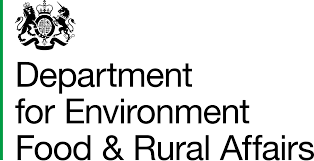PRESS RELEASE : NHS staff receive pay rise [July 2023]
The press release issued by the Department of Health and Social Care on 13 July 2023.
Most eligible dentists and doctors will receive at least a 6% pay rise. Pay for junior doctors will be increased by an average of around 8.8%.
- Most eligible dentists and doctors will receive at least a 6% pay rise
- Pay for junior doctors will be increased by an average of around 8.8%. Pay will be uplifted by between 8.1% and 10.3% depending on where they are in their training
- Government accepts the independent pay review bodies’ pay recommendations in full, recognising the vital contribution that NHS staff make to our country
- This pay rise recognises the need to recognise, recruit and retain NHS staff while protecting the taxpayer and bringing down inflation
- Announcement follows nurses, paramedics and midwives also receiving a pay rise and one-off payments
Pay scales for most doctors and dentists to increase by at least a 6% this year after the government accepted the recommendations from the independent pay review bodies in full.
Around 130,000 full-time equivalent doctors and dentists, including junior doctors and consultants, will see their pay rise in line with the Review Body on Doctors’ and Dentists’ Remuneration’s (DDRB) recommendations. Pay for junior doctors will be increased by 8.8% on average. The agreement means pay for a first year junior doctor will increase by 10.3%. Pay for the most experienced junior doctors will increase by 8.1%. For consultants, this means a rise of 6%.
Health and Social Care Secretary Steve Barclay said:
We hugely value the work of all NHS staff.
That’s why we’re giving junior doctors, consultants and senior NHS staff a fair and reasonable pay rise as recommended by the independent pay review bodies.
But it also balances the need to keep inflation in check while giving some staff significant pay increases.
We’ve made it clear this pay award is not up for negotiation and urge those unions still in dispute with the government to end their strikes immediately.
As recommended by the DDRB, most dentists and doctors will receive at least a 6% pay rise. Junior doctor pay will be increased by 6% plus £1,250.
Average basic pay for a first year junior doctor will increase from £29,300 to £32,300 and for a junior doctor in core training with 3 years’ experience it will increase from £40,200 to £43,900. For consultants and SAS doctors on pre-2021 contracts, this is on top of the 4.5% pay rise they received last year. Some staff will also benefit from performance pay, overtime, pay progression and pay rises from promotion, alongside the pay uplift.
The government has been clear about the need for pay awards to recognise the hard work of the public sector while meeting the Prime Minister’s priority to halve inflation and managing public spending effectively.
More borrowing would add pressures on inflation at exactly the wrong time, risking higher interest rates and higher mortgage rates. The government plans to increase the main rate of the immigration health surcharge – to ensure it covers the full healthcare costs of those who pay it, having been frozen for the last 3 years despite high inflation and wider pressures – to at least £1,035, and the discounted rate for students, their dependents, those on Youth Mobility Schemes and under-18s to £776. The government will fund this pay award through prioritisation within existing departmental budgets, with front line services being protected.
Last month one million NHS staff, including nurses and paramedics, received a 5% pay rise worth at least £1,065 to full-time staff as well as 2 one-off payments worth at least £1,655.
Today’s announcement comes weeks after the NHS published its first ever NHS Long Term Workforce Plan, backed by over £2.4 billion government funding, which will deliver the biggest training expansion in NHS history and recruit and retain hundreds of thousands more staff over the next 15 years.
Background information
The pay review bodies considered a range of evidence from various organisations.
All pay awards will be backdated to 1 April 2023. This pay award is only applicable to NHS staff in England. The 2023 to 2024 pay uplift for NHS staff directly employed by NHS providers will be funded by NHS England through system allocations.
The government asked the DDRB and SSRB for recommendations for NHS staff not already in multi-year deals – this includes junior doctors, dentists in training, consultants, SAS doctors on old contracts, dentists and salaried GPs.
The full Pay Review Body reports can be found on GOV.UK. The Review Body for Doctors’ and Dentists’ Remuneration (covering doctors and dentists not in multi-year deals) recommended a 6% increase for the majority of its remit group. Pay for junior doctors will increase by around 8.8% on average. This is because the DDRB recommended 6% plus £1,250 on a consolidated basis.
The Senior Salaries Review Body (covering very senior managers in the NHS and executive senior managers in DHSC’s arm’s length bodies) recommended a 5% increase, with a further 0.5% in each employing organisation used to address specific pay anomalies.
Following acceptance of the Agenda for Change (AfC) offer by the NHS Staff Council, the government confirmed it would no longer be seeking recommendations on the 2023 to 2024 pay award from the NHS Pay Review Body (NHSPRB) for non-medical staff on the AfC contract.
The government has since received the report from the NHSPRB with their observations on the pay deal in England which we welcome and we have published at the same time as the DDRB and SSRB reports.
Those already in multi-year deals were not in scope of the pay review body’s recommendations this year. The DDRB were not asked to make a pay recommendation for GP partners as they are subject to a 5-year investment agreement to 2023 to 2024, which was agreed with NHS England and the BMA in 2019. For salaried GPs, the 6% award will raise the minimum salary by around £3,900 and the maximum by around £5,900.
The GP contract will be uplifted to provide funding for salaried general practice staff. This funding will be backdated to April 2023 and it is our expectation this funding is passed on promptly to all salaried general practice staff. As self-employed contractors to the NHS, it is for GP practices to determine uplifts in pay for their employees.
The government is absolutely committed to ensuring the NHS has the funding it needs to deliver for patients.
The government is committed to living within its means and delivering value for the taxpayer, and therefore it’s prioritising within existing departmental funding to fund these uplifts.
The government is working in collaboration with the NHS Staff Council to implement the NHS pay deal.



